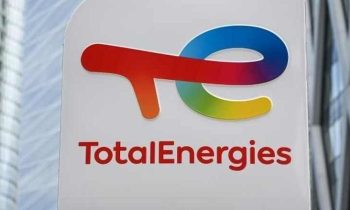
…MG Vowgas, oilserv, and M RS in the race.
Olusola Bello
Ninty-Six companies have submitted bids for the rehabilitation of Nigerian National Petroleum Corporation (NNPC) downstream critical pipelines and associated depots, terminal infrastructure through finance, build operate and transfer BOT model.
NNPC has over 22 depots across the country with many linked with pipelines that carry fuel products to various terminals and depots.
But many of these critical infrastructure are in states of disrepair which has affected the smooth supply of fuel to the nooks and crannies of the country.
Some of the notable companies that applied are: MG Vowgas Limited, Oilserv, MRS Oil and Gas Company, Baywood Continental Limited.
The contracts for infrastructure will be awarded on LOT basis. A company is allowed to express interest in a maximum of two (2) LOTS. However, multiple bid winners will be awarded only one (1) LOT where they are most competitive. Prospective Companies will therefore be required to submit as part of the Pre-qualification documents indicating the LOT(s) of their interest.
Over the years, the pipeline network has suffered incessant unauthorized interference. This is one of the strongest drivers for the introduction of Horizontal Directional Drilling (HDD) to the Scope of the Project. The new pipelines will have Intrusion Detection and Cathodic Protection Systems to complement the deep burial. In addition
NNPC’s pipeline and Depot network is an integral national asset, the operation of which started in 1979 by the defunct Pipelines and Products Marketing Sector (PPMS).
The organization was later renamed Pipelines and Products Marketing Company (PPMC) in 1988. NNPC Management however, with the support of the Federal Government, unbundled the old PPMC to among others, have a separate entity overseeing the crude and product pipelines and storage network.
The restructuring of PPMC in 2016 gave rise to the creation of Nigerian Pipelines and Storage Company (NPSC), which is charged with the responsibility for operations and maintenance of NNPC’s pipeline and depot facilities. By its design, the pipeline network is to move efficiently crude oil from terminals located at Escravos and Bonny to Warri Refining and Petrochemical Company (WRPC) and Port Harcourt Refining Company (PHRC), respectively.
Thereafter, refined petroleum products – Premium Motor Spirit (PMS), Dual Purpose Kerosene (DPK) and Automotive Gasoline Oil (AGO) are moved from the Refineries to the product Depots for truck out.
Imported or Local Crude oil is supplied to Kaduna Refinery and Petrochemical Company (KRPC) via the pipeline from Escravos Terminal via WRPC and may also be discharged from vessels at Warri Jetty into WRPC tanks for onward pumping to KRPC.
To meet any white product supply shortfall, imported petroleum products are received into Atlas Cove Depot tanks via pipeline from the Single Point Mooring (SPM) facility offshore and/or the New Atlas Cove Jetty (NACJ) for onward distribution inland.





